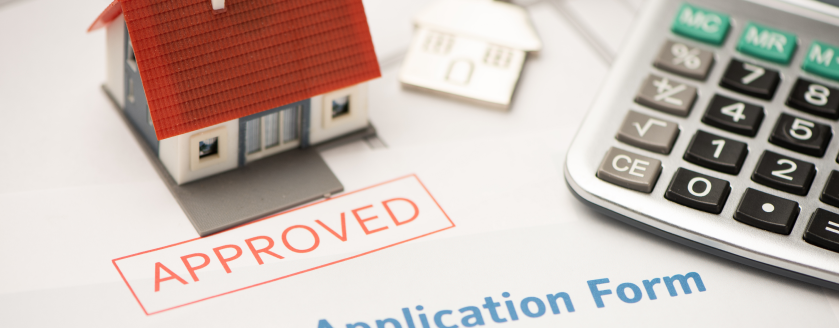What is a Mortgage?
Written by:
Mike Tassone
Mike is a Co-Founder and Chief Operating Officer of Own Up. He has expertise in all areas of residential lending, having led operations for a top 40 lender in the United States.
See full bio

Two in three Americans are homeowners, so when the 2017 tax law overhaul changed the rules for mortgage interest and property tax deductions the reaction was immediate and angry. How dare you take our tax deductions. This is an attack on the middle class. And much more of the same. Then the law took effect and people realized that due to other tax changes, most Americans would not be adversely affected.
It turned out people did not take time to fully understand the new law. This is not an uncommon scenario. In fact, the same can be said about mortgages. Most Americans who own homes have one, but they don’t always understand their options and for first-time home buyers, many know just the basics.
Here is a primer on the mortgage process.
The Basics of a Mortgage
A mortgage is a home loan you take out to finance the cost of buying a house. Because homes cost significantly more than median household income, most people cannot buy a house without a mortgage. The median purchase price of a house in the third quarter of 2019 was $310,900. With a conventional loan, home buyers pay a 20 percent down payment, leaving $248,720 that needs to be financed with a mortgage.
How much you pay over the life of the loan depends on the mortgage interest rate, which is influenced by many factors including economic conditions, your credit score and the loan length. Your monthly mortgage payments always includes property taxes and homeowners’ insurance, along with potential other charges that are dependent on your specific situation such as private mortgage insurance and homeowners’ association dues (HOA). Monthly payments for a house costing $310,900 vary from about $1,500 to about $2,000 depending.
Two thirds of homeowners have a mortgage, though that rate varies greatly by age. Close to 70 percent of older adults have paid off their mortgage, while less than 20 percent of Millennials (those in their 20s and 30s) have done so. Some people also have second mortgages taken to help purchase the property, or in the case of a home equity loan or home equity line of credit, to undertake home additions and renovations.
Generally there are one or two names on a mortgage and they belong to the people who live in the home. Minors, or those under 18 (besides emancipated minors), need an adult to co-sign legal documents including a mortgage. This co-signer must have income, not a lot of debt and be creditworthy. Some buyers over age 18 will have a co-signer who does not live in the home if they do not have a long credit history and want to secure a better interest rate.
Type of Mortgages
Shopping for a mortgage is much more complicated than it used to be. This is because the expanded number of options mean you are likely to get a lower interest rate if you shop around. Buying a home is likely the biggest financial transaction in one’s life, yet 77 percent of homebuyers apply with only one lender. Why? Because most people don’t know that rates can vary as much as 0.50%, saving you over $20,000 over the life of the loan in many cases. Because people fear that site like Lending tree will sell their personal information to others. And because real estate agents often recommend lenders they are comfortable with using, and their clients heed that advice.
Be the one in four that shops around. You wouldn’t go to one car dealership and buy a car, would you? This purchase is much bigger. Different institutions offer mortgage loans. These include local banks, credit unions, and large banks. You can also choose to go through a mortgage broker. Own is a tech company, not a bank. As an online broker, we provide you with multiple offers from our network of top-rated lenders. Our service is free, as we get paid a commission (which is smaller than that of other brokers and lenders) when you pick a lender from our network. Also, we keep your information completely confidential.
There are two main types of mortgages:
- fixed-rate mortgages, where the rate remain the same for the life of the mortgage
- adjustable-rate mortgages where the initial interest rate is lower for a period of time, and then increases.
In either case, mortgage loans are generally for 30-year or 15-year terms. Conventional loans must meet strict financing rules and are backed by Freddie Mac and Freddie Mae, two quasi-governmental organizations.
Beyond these general parameters, there are different ways to make home buying more affordable. They include paying points to lower your mortgage interest rate, or getting a lender credit to lower your closing costs. Many states offer first-time homebuyer programs and programs for specific groups of people. These include two main types:
- FHA : The Federal Housing Administration offers loans with down payments as low as 3.5% for first-time borrowers and those with lower incomes. These loans have low closing costs and include mortgage insurance, though a different kind than the Primate Mortgage Insurance (PMI) required in conventional loans with low down payments.
- VA: The U.S. Department of Veterans Affairs offers low or no down payments loans to current and former members of the military. Borrowers pay a fee (referred to as a “funding fee”) for the privilege of accessing VA loans and pay no mortgage insurance.
Applying for a Mortgage
For most home buyers, applying for a mortgage starts with a pre-approval letter. A pre-approval letter states how much you are able to borrow to purchase a house. The letter is given after the lender reviews information including your credit score, income and employment history. A pre-approval letter is not a guarantee you will be approved for a loan. It means that as of the day it is issued, the lender does not see any impediments to approving you for a loan for a stated amount. It is also necessary to show real estate agents and sellers you are serious about house hunting.
Be sure that whatever lender you choose for pre-approval offers a soft credit check. A hard credit inquiry affects your credit score; soft credit inquiries do not. Some lenders will use hard credit inquiries on pre-approvals to dissuade you from shopping around. Own Up always uses soft inquiries for pre-approvals.
Before applying for a mortgage, check your credit score. Prior to the housing crisis, median credit scores for purchased mortgages was 692. After the crisis, they increased over 20 points. A credit score below 620 will typically make obtaining a mortgage extremely difficult. A credit score over 700 is something to aspire to, while over 740 puts you in the top tiers. Remember, even a 0.5 percent change in your mortgage interest rate could save you tens of thousands of dollars over the life of the loan.
Even people with excellent credit scores can find it more challenging to get a mortgage. This is because many Millennials have student loans and an increasing number of people work in the gig economy, where income fluctuates. Neither of these situations preclude you from getting a mortgage, though it does complicate the process.
Everyone had some debt, and lenders recognize this. Lenders look to see that borrowers have a debt to income ratio (DTI) below 43 percent and that housing costs are no more than 28 percent of gross monthly income.
Once you are ready to apply, make sure you have all the proper documentation needed for a mortgage application including income verification, credit reports, tax returns, bank statement and outstanding debt (including credit card debt) . See a complete list here.
Down the Road
Interest rates are constantly changing and a mortgage is not set in stone forever. You can refinance your mortgage when either interest rates go down significantly and/or to shrink the term of the loan. Refinancing can lower your monthly payments and total costs. You can also take out a second mortgage, called a home equity loan, for a home addition or renovation. Some people also choose to prepay their mortgage, and in some situations this is advisable.
While most everyone knows what a mortgage is on the surface, the details can be overwhelming. If you are thinking about buying a house, or are in the market for a mortgage, give us a call. At Own Up, mortgages are what we do best. We’d love to chat and answer any of your questions.


